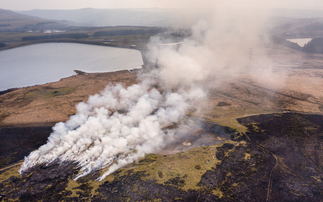Just four years ago, the price of oil was below $50 a barrel. Now Brent crude is typically selling above $100 a barrel. While there have been some short-lived falls in prices recently, the sudden rebound to more than $100 shows that businesses cannot rely on any long-term dips in prices. Indeed, the International Energy Agency (IEA) has warned that a continuation of this prolonged price inflation, combined with systemic volatility, could put the fragile global economy at risk - and it puts increasing pressure on businesses to reduce their dependency on the ‘the black stuff'.
There is no doubt that businesses need to find ways to insulate themselves against the unstable energy market. But to do this successfully, they will not only need to invest in alternative fuels and technology, they will have to fundamentally alter how they view energy efficiency.
For many years the Carbon Trust has helped businesses identify where to cut their energy use and therefore their costs. The benefits of this cannot be underestimated. Often, the best gains come from simple measures, such as better insulation, cutting waste and turning down thermostats. When rolled out across a large property portfolio, these small changes make a significant impact.
But abandoning wasteful practices must be the bare minimum undertaken. Sustainability needs to go beyond corporate responsibility - it should be at the heart of corporate strategy. Businesses' real priority should lie in understanding how they can catalyse their entire organisation to change, potentially redefining their business models and taking a holistic, rather than piecemeal, approach to carbon management and energy reduction.
At the Carbon Trust we have been passionate about the need for corporate Britain to curb its CO2 emissions long before the latest market uncertainty. For the past decade we have been advising businesses on the symmetry between sustainability and profitability. Indeed, we believe that in the long term the former is essential for the latter.
We know from our own recent research that investment in energy efficiency produces an internal rate of return of up to 48% - four times the minimum rate of return demanded by most finance directors. And yet our analysis of more than 1,000 carbon management projects shows that large UK businesses are wasting at least £1.6bn every year on unnecessary energy.
Energy efficiency is already on the agenda for some. Ladbrokes, the UK's largest bookmaker, has introduced an innovative way of involving employees in the energy use of each of its stores. An interactive dashboard allows staff to monitor and react to changes in energy use at any given time. The changes will allow the company to reduce its energy usage by 21% by 2013, thereby dramatically saving money, without having to make a huge upfront investment.
Heinz has reduced its energy usage by 13% at two of its largest production plants in the UK. This is in addition to improving its ability to source recycled materials and reduce the footprint of its supply chain. Most eye-catchingly, the company found a more efficient way to cook its iconic baked beans.
However, there are companies for whom reducing their energy dependency, and in turn the carbon footprint of their products and services, has long been a leadership issue, such as Marks and Spencer through its ambitious Plan A. And organisations such as Kingfisher have put green business growth at the heart of their corporate strategy. The company's Future Homes strategy - which aims to help its customers, employees and suppliers make the homes of the future more sustainable and affordable - has been developed in recognition of the potential to reduce costs through better energy efficiency and boost sales by tapping into demand from consumers for eco products and services. It is using carbon reduction to develop a competitive sales strategy, differentiate its products, boost operational growth and enhance supplier, partner and staff communications.
To thrive in a future likely to be characterised by volatile energy prices, businesses need to commit to a long-term, strategic approach to environmental and energy management.
The board members of UK plc should view sustainability as a game-changer at the heart of every aspect of their organisations - from supply chain management and engaging staff and partners, to stimulating demand for products and services.
Focusing on near-term measurement and monitoring of energy use is to be commended as the first step to becoming a sustainable enterprise. But leading businesses recognise that to avoid operating at the mercy of fluctuating oil prices, they must place sustainability at the core of their business strategy.
Hugh Jones is managing director of Carbon Trust Advisory Services







